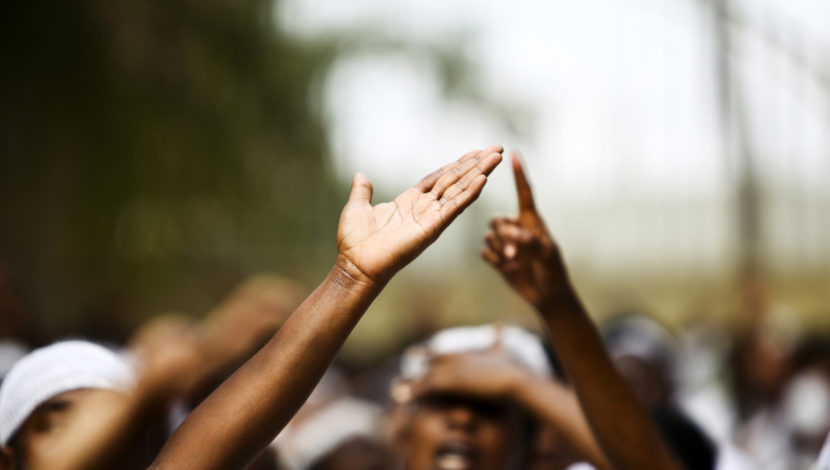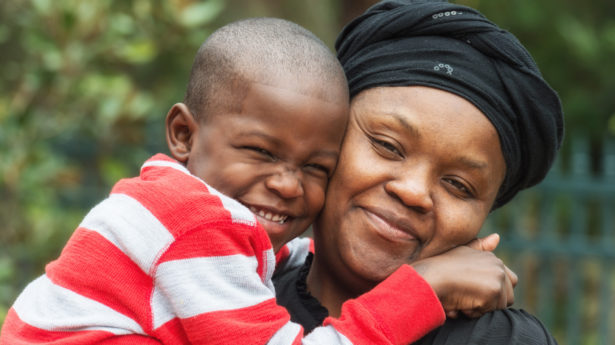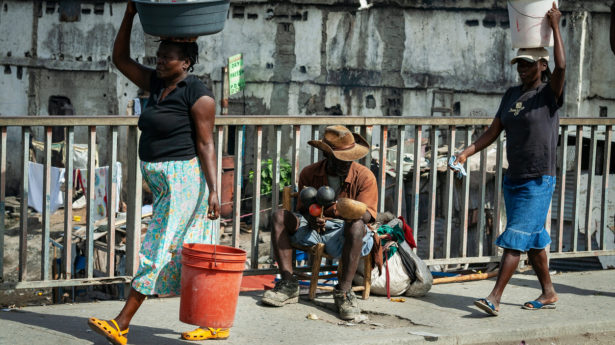The Unitarian Universalist Service Committee advances human rights through grassroots collaborations.
In 2022, UUSC Will Collaborate With Haitian Diaspora

By on December 30, 2021
When the Department of Homeland Security evacuated and demolished the migrant camp of approximately 15,000 people (mostly Haitian) under the Del Rio International Bridge in Texas in late September, they hoped that the newspaper headlines, as well as the massive public outcry about the humanitarian crisis, would die down. That is exactly what has happened; but for the people camping under the bridge and their loved ones, the saga is far from over. Instead, Haitian migrants encounter barriers specifically designed to deter other Haitians from coming to the border. As a result, Black migrants face a litany of abuses above and beyond the norm, from physical attacks by Border Patrol agents on horseback to the use of a torture device known as “the wrap.”
Since Biden took office, there have been 133 flights expelling more than 13,000 Haitians, according to The Institute for Justice and Democracy in Haiti. This includes nearly 2,000 children. Even before the Del Rio camp, Haiti was already the country with the single highest rate of asylum denials in immigration court. From October 2018 to June 2021, out of 4,202 asylum applicants from Haiti, only 194 were granted asylum—less than 5%. That makes Haitians six times more likely to lose their case than the average asylum-seeker.
A coalition including Haitian Bridge Alliance and Innovation Law Lab has filed multiple complaints and public demand letters about the inhumane conditions and denial of access to legal services for Haitians at Torrance County Detention Facility in New Mexico. Many Haitians report failing a “credible fear interview” for asylum before even understanding what it was, and others were expelled under “Title 42” without even being considered. As part of the complaint, an anonymous 25-year old Haitian man detained at Torrance said, “I don’t know what asylum is. I wasn’t allowed to speak. Nobody explained anything and they just told me I was supposed to have an attorney. I don’t want to go back to Haiti. I can’t go back. My family member was killed and his house was burned. My mom has just been crying because I cannot go back. If I go back I can’t even leave the airport.”
The Haitian diaspora in the United States is taking the lead in organizing support for the Haitian refugee community. In Boston, Massachusetts, Haitian-led organizations Immigrant Family Services Institute and the True Alliance Center are providing emergency support to hundreds of newly arriving Haitians who came to the area to live with family. UUSC is partnering with these organizations to find citizen sponsors and apply for humanitarian parole for Haitian migrants still in detention in an effort to get them released into the community.
In Haiti, a civil society coalition called The Commission for a Haitian Solution to the Crisis is proposing clear steps to move Haiti towards a functional democracy. They argue that the violence and political chaos currently engulfing Haiti must be understood within its history of colonialism and resource exploitation by France, the United States, and the developed world. Even today, the United States is directly influencing Haiti’s politics by contributing to destabilization with the mass deportations, and even undermining democracy by tweeting their support for new unelected Prime Minister Ariel Henry, put in place by an outside “Core Group” following the assassination of President Jovenel Moïse in July.
The United States must take a deep look at its treatment of Black migrants, including Haitians, and do better. We know from the history of the border that a strategy of deterrence does not stop people from coming. The Biden Administration is playing a losing game and breaking their promises by trying to appease anti-immigrant extremists whom we know will never compromise. We know that it is possible to invest in Haitian civil society solutions and support stabilization in Haiti that will allow more people to stay home in the country they love, and at the same time treat those that flee the current conditions with respect and dignity.
In the coming months, UUSC will be building partnerships with civil society organizations in Haiti to help advance a grassroots-led agenda to rebuild the nation and help the government better serve its people. Stay tuned as UUSC announces these partnerships and provides opportunities for its members and supporters to connect and support the work of these groups.
Photo Credit: iStock—1001nights

